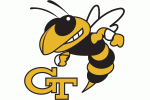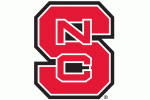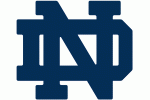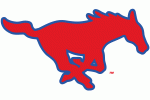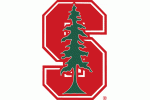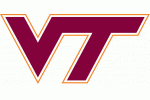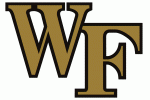On the academic scandal front, a portion of ESPN’s “Outside the Lines” feature on the scandal creates a viral sensation later proven to be erroneous and out of context; Bradley Bethel later takes Mary Willingham and Jay Smith behind the woodshed.
After HBO’s "Real Sports" took its turn with the UNC academic scandal, ESPN’s "Outside the Lines" joined the fray last week. In one segment, former UNC learning specialist Mary Willingham was featured spouting the now-familiar stories of how certain Carolina student-athletes were woefully unprepared for college-level work and that classes in the Afro-American Studies department required little to no work and were designed for the purpose of keeping academically-challenged athletes eligible. At one point in the piece, Willingham holds a paper with one written paragraph and declares that it was "A-minus level work". The paper is titled "AFAM 41 Final Paper" and the visual of the paper and Willingham’s comment give the impression that the paper received a grade of A-minus.
A number of websites jumped on the OTL story as a prime example of Carolina’s academic malfeasance and ABCers everywhere had the evidence they needed to prove that "UNC cheats" – except that the paragraph was not a "final paper" and the writing sample was taken entirely out of context, as Willingham herself later admitted. Jordan Weissman of Slate has the best summary of the origin and context of the paper fragment, but the short version is this: ESPN asked to shoot samples of student work she had saved over the years she worked with UNC athletes, and her comment that it was "A-minus work" meant that the student received an A-minus in the course, not on the paper. Moreover, Willingham also later admitted that the writing sample was not a stand-alone essay but was probably only a portion of a take-home exam.
Fast-forward to Tuesday of this week, when current UNC learning specialist Bradley Bethel, who has previously spoken out about Willingham’s misrepresentation of student-athletes at Carolina, set his sights on Carolina history professor Jay Smith, who has been an outspoken critic of the academic-athletic hierarchy and who has suggested UNC voluntarily return its 2005 and 2009 NCAA basketball championships. Smith has emerged as Willingham’s chief on-campus supporter, and the two of them are working together on the reform crusade, including running a joint website and collaborating on a book about the UNC academic scandal. Bethel, who currently holds the job working with athletes that Willingham once held, and Smith began an email exchange in the fall that has continued through this month. The email duel began when Bethel challenged Willingham’s credibility in the comments section of an NPR piece by commentator Frank Deford. Smith rushed to Willingham’s defense and the battle was on.
You can read the specifics of Bethel’s challenges to Willingham and Smith at his blog. The salient point is, if anyone is qualified to challenge Willingham’s claims as it relates to student-athletes at Carolina, it’s Bethel. He currently has the job she once held, and has access to the same data and experiences. And he writes her experiences were not like the ones she described to NPR, CNN, HBO, and ESPN. Moreover, there are plenty of examples where Willingham’s public statements don’t exactly match up with how things really are, such as with the "paper" featured in the ESPN piece; that error was so egregious even Willingham herself had to correct that one.
Willingham has become the poster child for "academic reform" and is now apparently recognized as an expert in the field, despite not having worked with athletes at UNC for over four years now. And although Willingham’s claimed her data was "100% correct", serious concerns have been raised about her methodology and therefore her conclusions. At the same time any challenge to Willingham’s claims is portrayed as "bullying", her defenders, like Jay Smith, are providing cover for the seemingly glaring holes in her research. As Brian pointed out to me in an email, in a comment posted on Inside Carolina, Smith allegedly had this to say (emphasis mine):
But I have to point out that you go way too far when you say that Mary has been "presenting herself as a serious academic researcher." She has an adjunct appointment in the School of Ed, but she has always been clear about her primary role at the university. She has consistently presented herself as what she is: an experienced literacy specialist who did hands-on work with hundreds of UNC athletes for seven years, and who collected data about them between 2004-2012.
About the book–that book will be about a whole lot more than "the data," which was always going to be relatively marginal to the story anyway. And for crying out loud, we’re not speaking out for "promotional" reasons. We don’t expect any financial windfall from this; ask any professor how much money he/she made on the last book. Not much. We’re speaking out because the system is rotten and its ugliness must be exposed. That simple.
Uh, Dr. Smith, the data was the pillar around which much of Willingham’s claims and status were based. In fact, CNN’s Sara Ganim used her data instead of the comparable data collected in CNN’s request to the universities it highlighted in the article. Only after UNC made an issue of that point did CNN change their representation of UNC to reflect the same data sources used for other schools that did not provide more specific information. And it was provost Jim Dean’s scrutiny of that data and the methodology of obtaining it that was offered as evidence that UNC was bullying and trying to intimidate Willingham. But Jay Smith says the data "was marginal to the story anyway". Or, maybe Smith just moved the goalposts when the data and methodology didn’t hold up.
Bethel further challenges Willingham as it relates to the revocation of her Institutional Review Board research approval by intimating that Willingham may have misrepresented her research purposes and that is the reason the approval was rescinded, and not an attempt to silence her. Bethel writes:
In summary, the IRB stopped Willingham’s research because her application did not indicate she would have the names and records of the athletes, but Willingham claimed she needed the names and records for the purpose of the study and accused the Provost of conspiring against her, and Professor Smith defended her, saying she may have made just an “inadvertent error” on the application.
Unfortunately, a statement from Professor Smith in one of his previous emails to me makes clear there was nothing inadvertent about their research.
Bethel goes on to explain:
In my exchange with Professor Smith back in September, months before Willingham started broadcasting her research to media outlets, I raised concerns about whether Willingham had obtained proper consent to do research on the athletes in the study... Professor Smith’s response to my concern tells us everything we need to know about how he and Wilingham understood her research. The following is an exact quote from his email:
"The data she has collected is secondary data. According to IRB protocols, such data requires no explicit consent, since aggregated data generated by the operations of the institution are not considered data from 'human subjects.' This is a non-issue. You have decided to make it one, for some reason, but it is a non-issue."
Smith’s statement could not have been any clearer. The key term is secondary data. That means data without names attached. That means he and Willingham knew all along she was not supposed to have the names of the athletes. He and Willingham knew the research was supposed to be only a secondary data analysis. They knew she was not supposed to access the athletes’ federally protected academic records without the athletes’ consent.
Unfortunately, the circus surrounding Willingham obscures the larger issues in play, and the rush to make UNC the poster child for all that is wrong with academics and athletics has morphed two important, but only tangentially connected, issues together. The first issue is the academic malfeasance. Chancellor Carol Folt has recently commissioned the ninth separate inquiry into this matter. The second issue is the general preparedness of student-athletes for college-level work. As a career educator who has worked at both the high school and college levels, I can tell you this is a matter of concern for more than student-athletes. The high number of high school graduates who have to enroll in remedial courses at even the community college level is rising. Admitting marginal students, much less student-athletes, is an issue at nearly every post-secondary institution in America. And yet every student in Willingham’s subgroup of athletes as well as those featured in the "Real Sports" piece met the NCAA initial eligibility requirements (an inconvenient fact when pushing the "UNC admits unqualified students" narrative).
The final point to be made here is that there should be no excuse for any academic misconduct at an institution like Carolina. UNC has owned that problem, and even if they hadn’t, CNN, Business Week, HBO, and ESPN continue to pin it to the school’s chest like Hester Prynne. But it’s not too much to ask that the claims made about UNC’s issues be fair and factual. The partial paper passed off as what constitutes A-minus work for athletes at Carolina is a perfect example of how the narrative runs truth and context off the road.







